Explore the latest trends in the protection and security of travel services, including enhanced safety measures, common threats, practical travel tips, and the role of technology in ensuring secure travel experiences.
Table of Contents
- Enhanced Protection Measures for Travelers
- Latest Trends in Traveler Protection
- Effectiveness of Protection Measures
- Security Threats and Risks in Travel
- Common Security Threats
- Mitigation Strategies
- Safe Travel Practices
- The Role of Technology in Enhancing Travel Security:
- Cybersecurity in Travel
- Conclusion
- References
- Questions/Answers
- Our latest Articles
Enhanced Protection Measures for Travelers
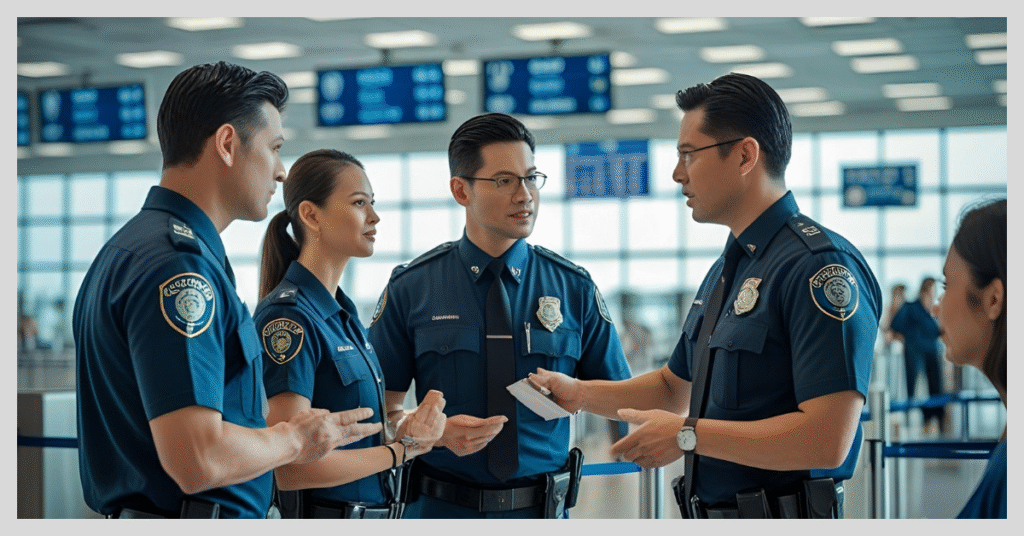
In recent years, the protection and security of travel services have evolved significantly to address an ever-changing global landscape. Governments, travel companies, and industry stakeholders are implementing advanced security measures to ensure travelers’ safety. Here, we explore the latest developments and trends in travel security and assess how they help prevent and respond to potential threats.
For more tips on staying protected abroad, check out our Solo Travel Safety Tips in the Caribbean: A Real-Life Guide.
Latest Trends in Traveler Protection
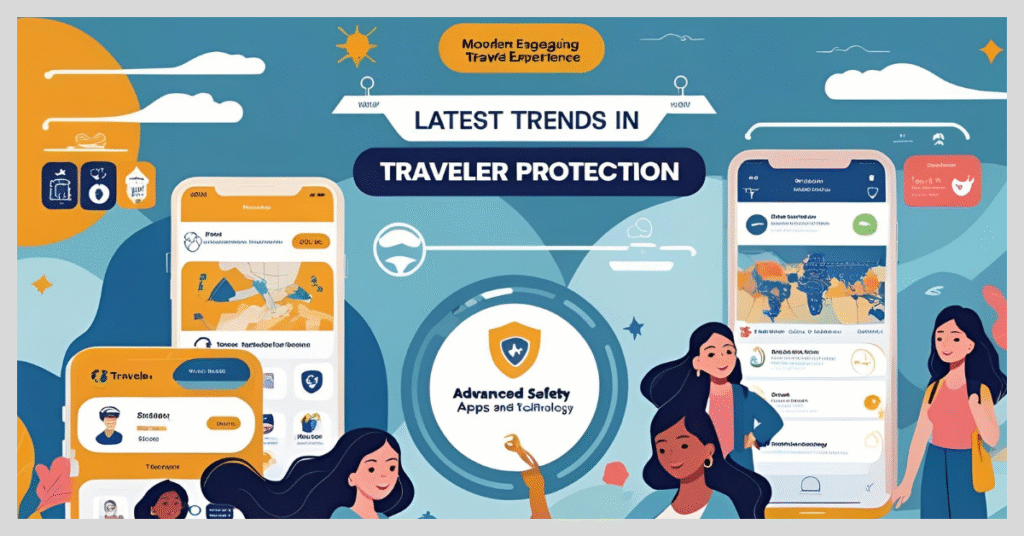
1-Biometric Screening: One of the leading advancements in the protection and security of travel services is using biometric screening technologies, such as facial recognition and fingerprint scanning, at airports and border crossings. These tools enhance security by verifying travelers’ identities more accurately and speeding up the check-in and boarding processes.
2-Digital Health Passports: In the wake of the COVID-19 pandemic, many governments have introduced digital health passports that allow travelers to provide proof of vaccination or negative test results. These systems, while focused on public health, also contribute to broader travel protection and security of travel services by ensuring that travelers meet entry requirements for their destinations.
3-Advanced Baggage Screening: Technology such as 3D scanners and automated baggage tracking systems have become standard at many airports. These tools help detect prohibited items more efficiently and reduce the risk of theft or mishandling.
4-Real-Time Threat Monitoring: Governments and travel companies have invested in tools that provide real-time updates about potential security threats. For example, airlines and tour operators use risk assessment platforms that provide alerts about weather conditions, political unrest, or natural disasters.
Learn how AI is revolutionizing travel safety in our article 10 Approved Impacts of AI on Travel.
Effectiveness of Protection Measures
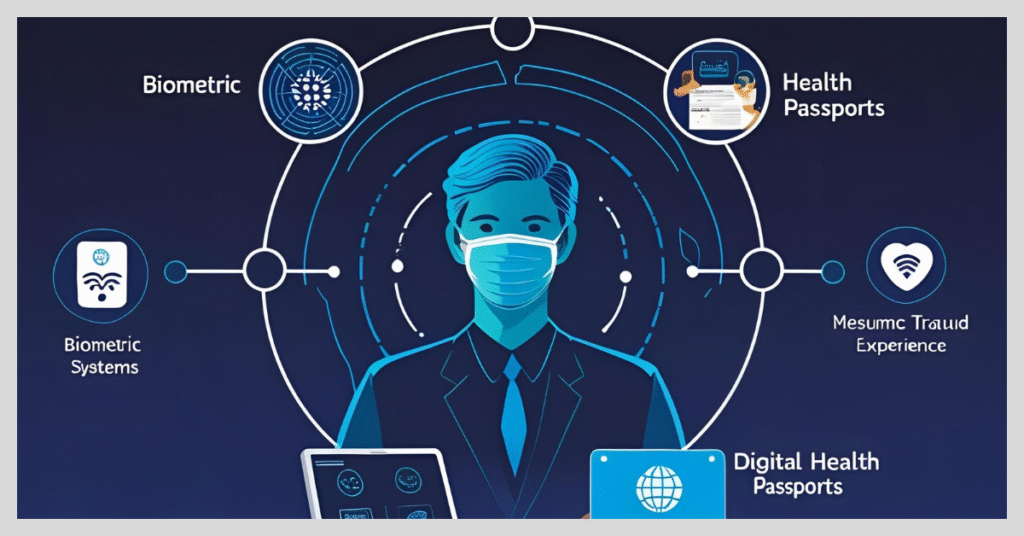
The effectiveness of these measures lies in their integration into the traveler experience. Biometric systems, for instance, are seen as a game-changer due to their accuracy in preventing identity fraud, while digital health passports have been instrumental in resuming global travel post-pandemic.
However, these systems are not without their challenges. Biometric data can raise privacy concerns, and digital systems are susceptible to cyberattacks. As such, while these measures significantly improve travel services security, they must be accompanied by strong data protection and security of travel services policies.
Curious about traveler experience in Europe? Don’t miss Madrid vs Barcelona: The Perfect Introduction to Spain or Best Time to Visit Paris: My Experience.
Security Threats and Risks in Travel
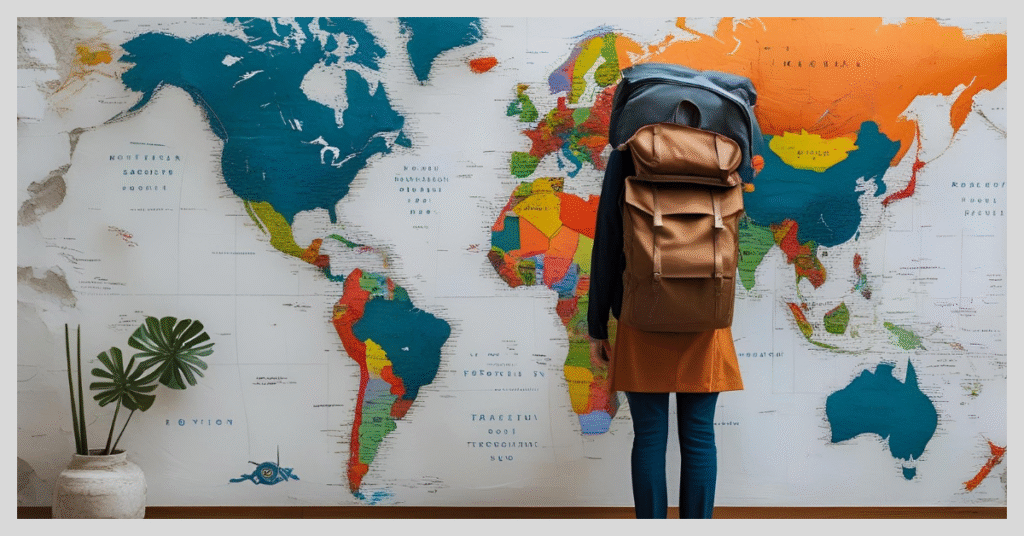
Security threats in travel are diverse and can range from terrorism and crime to health risks and natural disasters. Understanding these risks and implementing appropriate mitigation strategies is crucial for both travelers and service providers.
Common Security Threats

1-Terrorism: High-profile terrorist attacks in popular tourist destinations have placed protection and security of travel services in the spotlight. Airports, public transport hubs, and crowded tourist attractions are often targets of such threats.
2-Crime: Travelers are frequently targeted by criminals, with common offenses including pickpocketing, scams, and violent crime. Tourists are often perceived as vulnerable, making them an attractive target for criminal activities.
3-Health Risks: Global pandemics, infectious diseases, and local outbreaks pose significant health risks to travelers. For example, the spread of COVID-19 reshaped how health is integrated into the broader protection and security of travel services measures in travel services, with stricter protocols around hygiene and contact tracing.
4-Natural Disasters: Hurricanes, earthquakes, and wildfires can strike suddenly, often in regions where tourists are unaware of the risks. These events can disrupt travel plans and pose direct risks to travelers.
Mitigation Strategies

1-Risk Assessment: Travelers can mitigate risks by conducting thorough research on their destinations. Governments and travel agencies offer travel advisories that outline specific risks, such as political instability or health warnings.
2-Traveler Insurance: Travel insurance is one of the most effective ways to ensure the protection and security of travel services. Comprehensive policies cover medical emergencies, trip cancellations, lost luggage, and even evacuation in the event of a natural disaster or political unrest.
3-Emergency Response Plans: Both travelers and travel companies should have robust emergency response plans. For instance, tour operators may offer 24/7 emergency hotlines, while hotels often provide evacuation plans in case of natural disasters.
Packing right is also part of staying safe — here’s our Packing Like a Pro: Your Ultimate Guide.
Safe Travel Practices
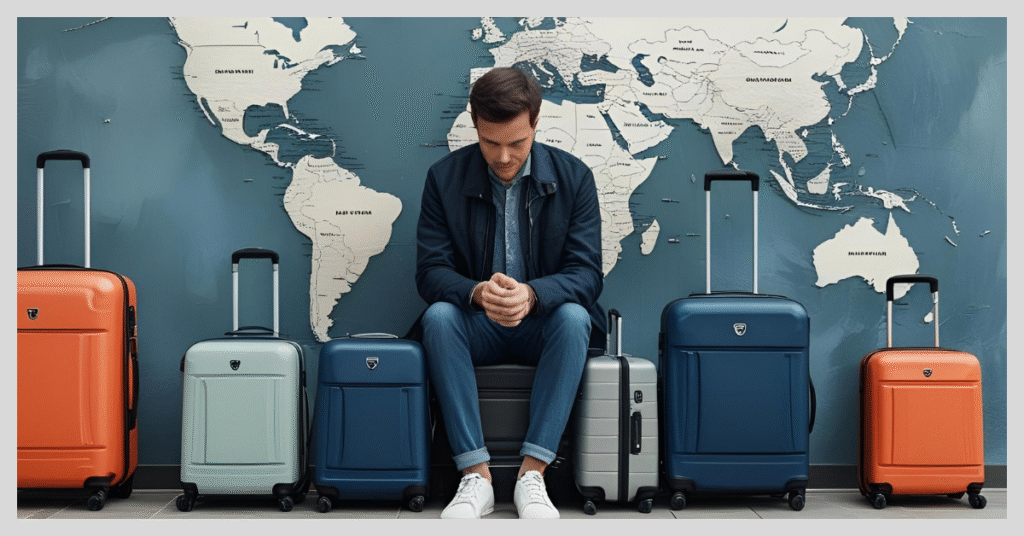
Travelers can take proactive steps to safeguard their well-being, ensuring they maximize the offer of protection and security of travel services. Here are some essential safety tips:
1-Know Your Destination: Before traveling, it’s essential to research the political, cultural, and safety situation in the destination. Check government travel advisories and ensure that you are aware of local laws and customs that may impact your travel.
2-Stay Informed: Subscribe to real-time updates or mobile alerts from trusted sources that provide information on any potential risks, such as natural disasters or political unrest.
3-Health Precautions: Ensure you are up-to-date with necessary vaccinations and carry a health kit that includes basic medicines and first aid supplies.
4-Avoid High-Risk Areas: Be cautious about where you travel within a country, avoiding regions known for high crime rates or political instability. Stick to well-traveled routes and avoid wandering in unfamiliar areas alone.
5-Limit Public Wi-Fi Usage: Public Wi-Fi networks can be a gateway for cyberattacks. Avoid conducting sensitive activities, such as online banking or accessing personal accounts, over unsecured networks. Instead, use a Virtual Private Network (VPN) for extra protection and security of travel services.
6-Keep Valuables Secure: Use hotel safes to store passports, money, and valuables. When outside, distribute important items like credit cards and cash in different pockets to reduce the risk of losing everything if pickpocketed.
7-Be Aware of Your Surroundings: Stay vigilant and trust your instincts. Avoid engaging with overly friendly strangers and stay aware of common scams in tourist areas.
The Role of Technology in Enhancing Travel Security:

Technology is playing a transformative role in enhancing the protection and security of travel services. From mobile apps that offer real-time updates to sophisticated tracking tools, technology is empowering travelers and travel providers to act swiftly in the face of potential threats.
1-Mobile Apps: Apps like Smart Traveler from the U.S. Department of State provide up-to-date information about safety conditions in various countries. Similarly, apps like Google Maps allow travelers to navigate unfamiliar areas more safely.
2-Wearable Devices: Wearable technology, such as GPS-enabled watches, helps track a traveler’s location in real-time. These devices are valuable for solo travelers or adventurers exploring remote areas where traditional cell phone coverage may be limited.
3-Traveler Tracking Systems: Governments and companies are investing in systems that track the movement of travelers in real-time. These systems, integrated with airline and hotel databases, help locate travelers during emergencies and provide them with relevant safety information.
4-Artificial Intelligence (AI): AI is now being employed to predict potential security threats. By analyzing data such as flight patterns, traveler behavior, and real-time intelligence reports, AI systems can alert authorities and travelers about potential dangers, such as impending terrorist attacks or health crises.
Cybersecurity in Travel

As travelers increasingly rely on digital platforms for booking flights, accommodations, and tours, the risk of cyberattacks also increases. The protection and security of travel services must include robust cybersecurity measures to safeguard personal data.
1-Encryption: All sensitive data, such as credit card information, should be encrypted during online transactions. Reputable travel companies employ SSL certificates to ensure secure communication between travelers and their platforms.
2-Two-Factor Authentication (2FA): Travelers should enable 2FA on all accounts to add a layer of protection and security of travel services, reducing the risk of identity theft or unauthorized access to personal information.
3-Data Privacy Regulations: Compliance with data privacy regulations, such as the General Data Protection Regulation (GDPR), is crucial for the security of travel services. Travelers should ensure the platforms they use adhere to these standards.
Explore how trust in online travel tools is shifting in our feature: How To Uncover Blind Trust In Modern-day Travel.
Conclusion
The Importance of Protection and Security in Travel Services and Future Developments
As the global travel industry continues to evolve, so too will the protection and security of travel services. With increasing risks from terrorism, cyberattacks, and health emergencies, travelers and service providers must remain vigilant and adopt the latest security measures.
We can expect further developments in biometric technologies, AI-driven threat prediction systems, and enhanced cybersecurity protocols. While technology will undoubtedly play a significant role, travelers must also adopt safe travel practices and stay informed.
Ultimately, the future of travel will be shaped by the balance between technological innovation and the personal responsibility of travelers, ensuring the safety and security of everyone on the move.
FAQs – Protection and Security of Travel Services
1. How can I stay safe while traveling abroad, especially alone?
Staying safe starts with preparation. Research your destination, stay in well-reviewed accommodations, avoid risky areas, and keep loved ones updated on your whereabouts. Using travel safety apps and a VPN can also offer extra protection.
2. Is travel insurance really worth it?
Absolutely. Travel insurance covers more than just cancellations — it can save you during medical emergencies, lost baggage, or trip interruptions due to political unrest or natural disasters.
3. How do I know if a travel website or booking app is secure?
Look for “https” in the URL, check for reviews, and make sure the site uses trusted payment gateways. Also, enable two-factor authentication and avoid entering personal data on public Wi-Fi.
4. What safety features should I look for when choosing a hotel or Airbnb?
Check for secure entrances, fire safety measures, emergency contact info, and proximity to hospitals or police. Reading recent reviews helps spot any safety concerns others have experienced.
5. What tech tools can actually help keep me safe during travel?
Use apps like Smart Traveler, Google Maps, or safety-focused wearables with GPS. Also, real-time alert apps and cloud-stored emergency contacts are great tools if you’re exploring unfamiliar places.
Celebrate New Year’s Eve with Unforgettable Travel Packages

As the year draws to a close, many people seek unique ways to celebrate New Year’s Eve. One of the most exciting options is to embark on a journey to a new destination, where you…
Carving Pumpkins in a Road Trip Through the Heart of America

Carving Pumpkins is a Journey Through America’s Fall Wonderland There’s something oddly poetic about carving pumpkins while the air turns crisp, the leaves paint the countryside in amber tones, and small towns come alive with…
AI Can Help in Travel: My Journey with an Intelligent Assistant

I’m Khawar Ayub, and this is the story of how I crossed continents with a digital companion who never slept, never got lost, and never complained AI. It began in Islamabad, under the soft glow…




